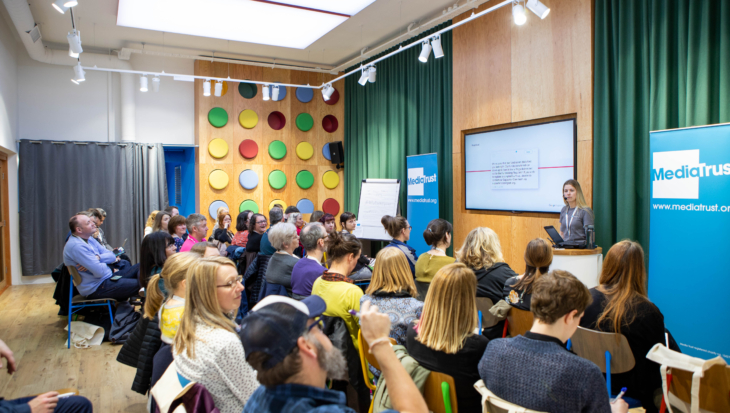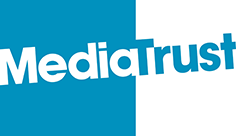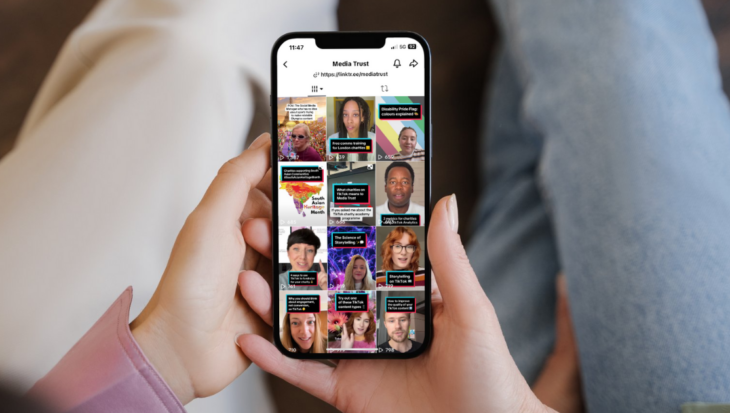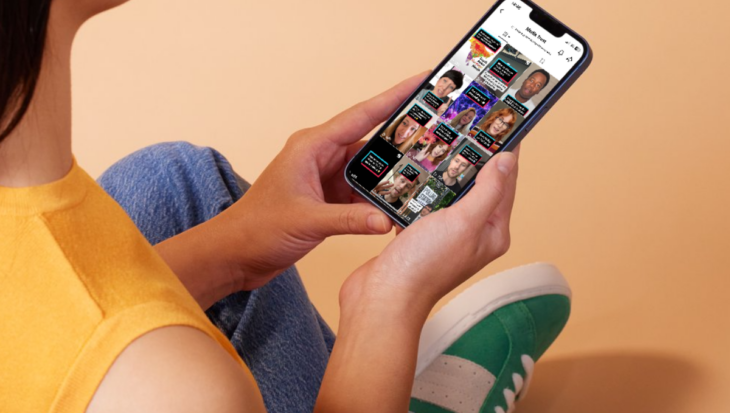Here at Media Trust, we’re on a mission to level the playing field for media representation in the UK. Simply put, we want the stories that are shared on our screens and in our newspapers, to be commissioned, written, produced by and feature people who reflect the full diversity of our society.
Today, and every day, disabled representation matters. Because what is seen in the media has a massive impact on policy-making and public attitudes. Disabled people are the least proportionately represented of all minority groups. This lack of representation means talent is going unrecognised, negative perceptions are reinforced and entrenched stereotypes are going unchallenged.
Currently, there’s a huge, 29% employment disability gap, where we should all be benefiting from the talent, skill and experience of disabled people, including the charity sector. And while we know there is a lot of work to be done in the creative and media industries, we all need to play our part. Here are some small steps charities can all take to be more inclusive.
Recruitment of staff and volunteers
When it comes to recruiting talented staff and volunteers, we strive to be as inclusive as possible. Here are a few things to think about:
- Check that your job description doesn’t include unnecessary ableist terminology. Such as, references to ‘fast-paced’ or a requirement for ‘strong verbal communication skills’ (if not essential).
- Remove barriers in your application process. Give options for large print forms, provide a link to upload a short video application (if appropriate) and list examples of reasonable adjustments that you are able to make. These are small signals to disabled people that they are welcome, and their needs have been considered.
- Consider using alternative networks for recruitment. You may find you have local disabled people’s organisations that can circulate the job description to people in the area.
This post on LinkedIn sums up some of the barriers disabled people can face when applying for roles.
Case studies
23% of the population is disabled, which means it’s likely there are people amongst your beneficiaries who have lived experience of a disability. While it might not be the reason they have accessed your charity for support, being purposeful about selecting a range of examples of people for case studies, testimonials and media interviews gives us an opportunity to highlight the complexity of the challenges faced by those we help. When disabled people come to your website to find out more about you, either to donate, volunteer or use your services, they may feel more comfortable seeing themselves reflected in your comms.
For more information about using intersectionality in your storytelling, sign up here for our Intersectional Storytellers Toolkit.
Accessible content
Be open to continuously learning about new ways to improve the accessibility of your content, both on your social channels and your website.
- The use of Alt Text is now pretty standard, but tools like captions and audio descriptions are still not used as often as they should be. Considering accessibility should be as important as selecting the right words or image – build it into your timelines, training and budgets as standard.
- Check the accessibility of your website. We understand how daunting a long list of errors can be, but focus on the pages that get the highest visitor rates, and then slowly work your way through the rest of the site. Work through our Websites Unlocked Toolkit to help you identify issues, such as missing form labels, low colour contrast and lack of clear headings.
- Is your imagery inclusive? Check out this resource to find free, diverse and inclusive stock imagery if you don’t have the resources to take photos yourselves.




